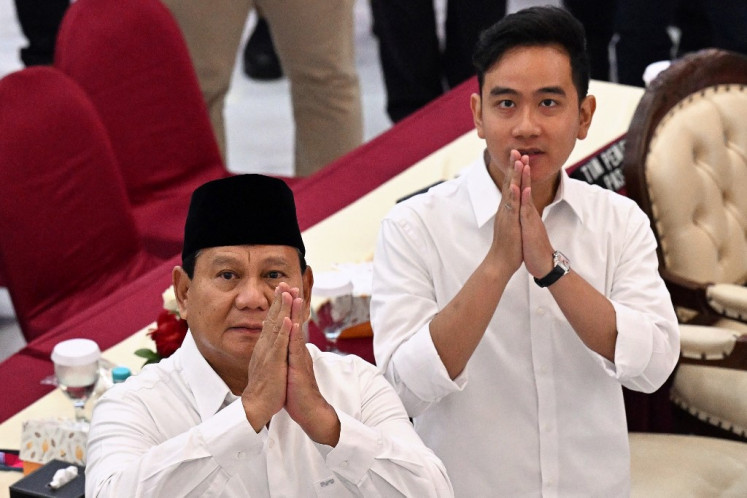Indonesia must confront regional wealth disparity: UNDP
Indonesian youth discussing the challenges they face during the Youth Consultation organized by UNDP in Jakarta
Change Size

I
span class="inline inline-center">Indonesian youth discussing the challenges they face during the Youth Consultation organized by UNDP in Jakarta. Poverty, poor governance and lack of spaces for participation are among the main issues they raised. Photo UNESCO Jakarta
Indonesia needs to reduce inequality between people living in different provinces by further investing in infrastructure, creating more employment opportunities and improving education quality and social protection, particularly in remote areas, according to the United Nations Development Program (UNDP).
UNDP director for Indonesia Christophe Bahuet said on Tuesday that Indonesia's human development Index (HDI) had great potential to raise its status from medium to high human development, if the government could implement better policies.
"The first message that we have to emphasize is that if Indonesia wants to have higher human development, the country needs to reduce inequality," Bahuet told thejakartapost.com.
In the Human Development Report (HDR) 2015 released by UNDP on Dec. 15, Indonesia ranked 110 of 188 countries, falling under the medium human development category with 0.684 HDI value, an increase of 44.3 percent from 0.474 in 1980. In the indices, Indonesia came just 0.018 point behind Samoa, which ranked 105 and was categorized as having high human development.
According to Bahuet, investment in infrastructure would help Indonesia to create more jobs, reduce disparity and lead to poverty elimination.
Similar to other middle-income countries with a 10 percent poverty rate, Bahuet said, the challenge remained for Indonesia to reach out to those 10, as they usually lived in unreachable and remote areas.
Better communication and connection thanks to improved IT would help, he said. "Indonesia needs to come with this new antipoverty strategy to reach out to the remaining 10 percent so that no one is left behind," Bahuet said.
The government should also, he went on, reform its education and health sectors to reach more remote areas.
Meanwhile, UNDP senior technical specialist Harry Seldadyo Gunardi said that as the development index in Indonesia varied across regions, the government should focus on remote areas of the archipelago.
'This would be in line with Indonesia's National Medium Term Development Plan for 2016 to 2019, which aims to bring people from remote areas closer to the central or regional level where policy formulation takes place,' Harry said.
'Improvement of distribution network between regions in the country also remains important.". (bbn)









